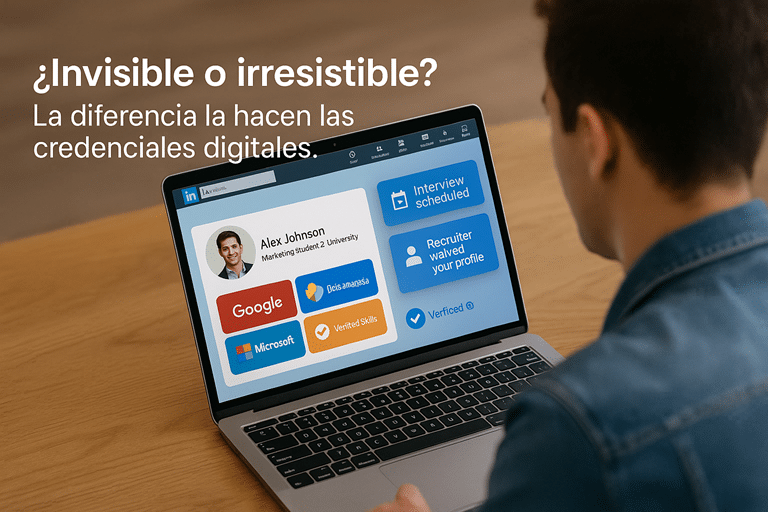Do you know what soft skills are? Have you heard of the term power skills? Do you have any idea of the importance of developing these skills for personal and professional growth?
In this article, we will explain everything you need to know about these types of skills, so that you can design strategies focused on enhancing them in your collaborators or students.
An essential type of skill
Currently, due to technological changes and new work and social realities, the challenges in the workplace are increasing. For this reason, it is essential that people strengthen their professional profile, developing all types of skills.
In this sense, one of the best ways to enhance the profile of your teams or students is through the development of power skills. Because? Because it is precisely these capabilities that allow individuals to adapt to various situations and deal with them effectively. If you want to know more about this topic, read on.
It might interest you: Digital badges: nine ways to define them
Soft skills vs. power skills
When we talk about soft skills, we are referring to competencies that focus more on the individual. These capabilities facilitate teamwork, improve interaction and allow us to obtain and improve results. Some examples of soft skills are: emotional intelligence, empathy, agility and critical thinking.
In the work and professional environment, these competencies used to be underestimated compared to hard skills, also known as hard skills. Hard skills are acquired through training and constant updating. However, today, human resources experts point out that these hard skills represent only 50% of what is needed for any job.
Differences between these types of skills
Power skills are closely related to soft skills, in fact, we could say that they are an evolution of the latter. The difference is that power competencies encompass both being and doing, in relation to the role that each person plays within an organization.
For this reason, power skills offer a much more complete and comprehensive perspective. That is why they are increasingly in demand by business organizations. Some of the most valued power skills are:
- decision making
- Proactivity
- Negotiation
- Assertive communication
- Leadership
- Teamwork
These skills are essential to succeed in today’s competitive labor market, which is marked by process automation and constant technological changes.

Download eBook
How to go from soft skills to developing power skills
How to transform soft skills into powerful ones? Below, we present some clear differences between soft skills and power skills. This way, you can have a better idea of how to convert one into another. In addition, there are four key power skills to guarantee the success of your organization:
1.Skills and attitudes to occupy a role: These skills are based on preparation and the way to face a certain position. To turn them into power skills, it is necessary to add security and self-confidence to the equation.
2.Teamwork: It involves the ability to integrate and work with other people. If you add autonomy and a sense of continuous improvement to this skill, it becomes a powerful leadership skill, highly in demand today.
3.Conflict resolution capacity: This skill is one of the most necessary in any work environment. If you combine it with a flexible mindset, you will not only be able to resolve conflicts satisfactorily, but also constantly generate novel alternatives.
4.Initiative: This soft skill becomes powerful when you develop an intrapreneurial mindset. By doing so, you will be able to achieve maximum efficiency in any professional role. It involves acting, taking risks and articulating with the business organization at all levels.
These are just some of the soft skills that you can turn into powerful ones to reach your full potential and that of your business organization. However, the challenge lies not only in how to develop these types of skills, but also in how to certify and recognize these types of competencies in an innovative and safe way.

CEO Acreditta
Subscribe to blog here and receive all our content







